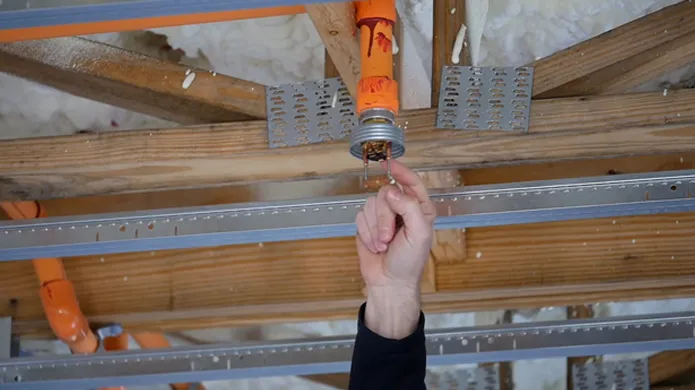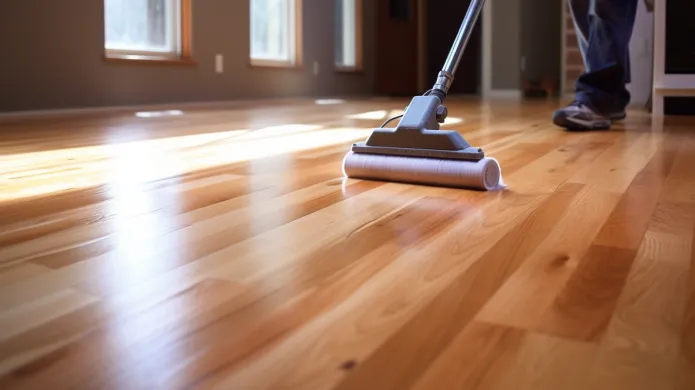How to Clean a Water Bell for Fire Sprinklers : 7 Steps
The water bell is an integral part of a fire sprinkler and should be cleaned regularly to ensure optimal performance. It is possible to detect changes in flow or pressure throughout the system using fire alarm bells installed at the riser of the system.
Water bells can become clogged with sediment and debris over time, causing the sprinkler not to function appropriately and causing water damage. So, bells must be cleaned regularly to prevent dirt and mineral buildup. But how to clean a water bell for fire sprinklers for optimal performance?
The good news is that cleaning a water bell is relatively easy and only takes a few minutes by following some easy steps. Please continue reading if you want to know how to maintain a fire sprinkler water bell.
How to Clean a Water Bell for Fire Sprinklers: In Steps Guide
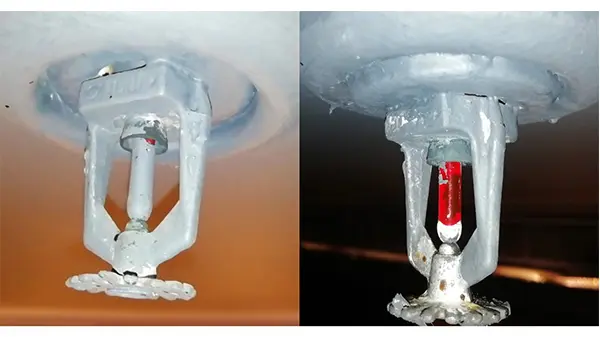
Occasionally, water bells become obstructed with mud and debris, preventing them from working correctly. If you notice your water bell is not working properly, you may need to clean it.
Here’s a the guide on how to clean a water bell for fire sprinklers:
Step 01. Turn Off the Sprinkler System’s Water Supply
The process for turning off the water supply will vary depending on your system type, but there are a few general steps you can follow:
- Locate the main water shut-off valve for the sprinkler system. This is usually located near the fire pump or in the basement near the water meter.
- Turn off the supply to the pump. This will ensure no water flows through the system while working on it.
- Open each sprinkler valve and allow any remaining water to drain out. Once the valves are all open, you can close the main shut-off valve and begin your cleaning process.
Step 02. Disconnect the Water Supply Line
The fire sprinkler head should be disconnected from the water supply line once all remaining water has been drained. Unexpected water pressure could cause severe damage to the sprinkler head.
Find the connection point between the supply line and the sprinkler head. This is usually located behind the head. Loosen the nut that secures the supply line to the head using a wrench. Once the nut is loosened, you should be able to pull the supply line away from the head.
Step 03. Remove the Water Bell from the Sprinkler System
Start by unscrewing the attaching screw with a screwdriver to remove the water bell. Once the screw has been removed, it should be possible to pull the water bell away from the sprinkler.
If the bell is stuck, you may need to use a pair of pliers to help remove it. Once removed, you can clean it with a brush or cloth before reattaching it.
Step 04. Remove All the Water from the Bell
The next step is to remove any remaining water from the bell. To do this, you will need to turn it upside down, open the drain valve, and allow the water to drain from the bell. Once all the water has been exhausted, the bell can be cleaned with a mild detergent and then rinsed with clean water.
Step 05. Brush Out Any Debris or Sediment Inside the Bell
The water inside the sprinkler’s bell can become filled with debris or sediment. If this happens, it could clog the sprinkler and interfere with its operation during a fire. There is a simple way to clean out any debris or sediment accumulated inside the bell.
Remove the bell from the rest of the fire sprinkler. Then, using a brush, scrub away any loose sediment or debris that you see inside the bell. Rinse the bell with clean water to remove any residual dirt or grime.
Step 06. Clean the Bell Inside and Outside
When cleaning the bell, all internals need to be cleaned. This includes the valve, piston, and seat. To clean the internals, disassemble the bell and soak all parts in a bucket of soapy water. Then, use a soft brush to scrub any remaining dirt or debris.
Ultimately, rinse the parts with clean water. Having rinsed the bell, a clean cloth should be used to dry the inside and outside of the bell.
Step 07. Reattach the Water Bell and Turn on the Water Supply
To reattach the water bell, simply screw it back into place. Once it is secure, you can turn on the water by opening the valve at the unit’s base. When finished, close the valve and replace any removed covers during the cleaning process.
Following these steps should allow you to clean your water bell and keep your fire sprinkler system in good working order. Regular cleaning and maintenance will help ensure your system works correctly during an emergency.
Why Do You Need to Clean a Fire Sprinkler Water Bell?
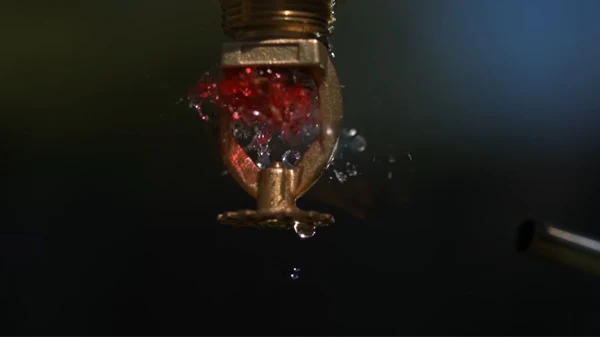
Fire sprinklers are essential to any fire safety system, but they can only do their job if adequately maintained. Part of this maintenance involves regularly cleaning the water bell.
There are several purposes for scrubbing a fire sprinkler water bell. The most crucial purpose is to remove any debris that might clog the sprinkler head and prevent it from working correctly. Others are:
- Regular cleaning helps to ensure that the sprinkler system can deliver the correct amount of water pressure. This is especially important in high-rise buildings, where a clogged water bell could result in a catastrophic failure of the system.
- Aside from preventing rust and corrosion, regular sprinkler system cleaning is a great way to prolong its life. So, having a regular cleaning schedule for all fire sprinkler systems is essential.
Regularly cleaning a fire sprinkler water bell can help ensure that your system is ready to protect you in case of fire.
What are the Purposes of Using a Fire Sprinkler Water Bell?
A key component of a fire sprinkler system is the water bell. This device is installed at the end of the main water supply line and helps to maintain pressure in the system. Here are some reasons for using a water bell with a fire sprinkler:
- Can prevent water contamination by using a check valve or backflow preventer.
- The control valve shuts off water flow to sprinklers, hoses, or hose connections for inspections, tests, and maintenance.
- A pressure gauge is used to determine the integrity of a piping system.
- In testing and repairing, a drain valve is used.
- The movement of water triggers the sound of water flow alarms through pipes.
These are some reasons why fire sprinklers and water bells are used. Keeping these devices in good working order can help ensure that your fire sprinkler system will keep you safe from fires.
How Does a Fire Sprinkler Water Motor Gong Alarm Bell Work?
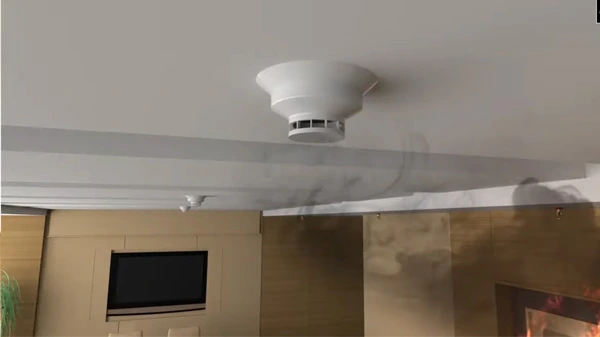
In its most basic form, a water motor gong can be described as a large, wall-mounted bell secured with a guard. In conjunction with fire alarm checks, dry pipes, deluge valves, and preaction valves, these alarms are typically mounted on the outside walls of fire riser rooms.
Water motor gongs are required for wet sprinkler systems, but other automatic sprinkler systems can use existing valves. When the sprinkler system is activated, water flows through the piping and into the water motor gong bell.
The increase in water pressure turns the turbine inside the gong, which sets off the fire alarm. Water motor gong bells are designed to be loud so they can be heard above the noise of a fire. They are also big enough to be seen from a distance, making them an effective way to warn people of a fire.
Do Fire Sprinklers Go Off If You Clean a Water Bell?
Water bells are often used with fire sprinklers but are two separate devices. Water bells are connected to the building’s water supply and are used to provide a constant flow of water to the sprinkler system. This water flow helps keep the sprinkler system clean and clear of debris. So, it is unlikely that cleaning a water bell would shut off a fire sprinkler.
Most modern fire sprinklers are designed only to activate when they sense high heat. Simply cleaning a water bell should not be enough to set them off. But, it is possible to accidentally trigger a fire sprinkler if you use high-pressure water through the water bell.
So, if you’re cleaning a water bell near a fire sprinkler, it’s essential to be careful with the water pressure. If you’re unsure, it’s always best to consult a professional before beginning any work on a fire sprinkler system.
Pros and Cons of Having a Water Bell with Fire Sprinklers
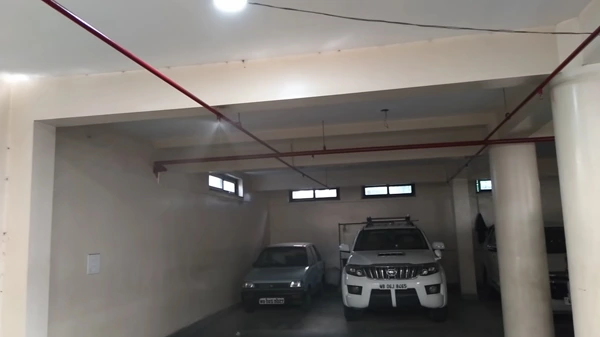
A water bell is a part of a fire sprinkler designed to provide a continuous flow of water during a fire. This can be an advantage in some situations, as it can help to prevent the spread of fire. But, water bells can also be a disadvantage, as they can cause significant damage to property if activated during a non-fire emergency.
Here are some pros and cons of having a fire sprinkler water bell:
Pros:
- Extinguishing fires with them is highly effective.
- These water bells provide a barrier to water and cool the surrounding area.
- They are a great way to show your support for your local firefighters.
- Fire sprinklers and water bells are often less costly than other forms of fire suppression.
- They are relatively easy to install and maintain.
Cons:
- In a non-fire emergency, it can cause a lot of damage.
- They can also disrupt traffic flow in a home or business, as water lines and hoses need to be run through the building.
- Water bells with fire sprinklers can be unreliable, as they may not go off in the event of a fire or may not have enough water pressure to fight a blaze.
- The water pressure may not be high enough to reach the fire, or the bell may not ring in time.
Before deciding, one must carefully weigh the pros and cons of having a water bell with fire sprinklers. In some cases, it may be best to have a water bell, while in others, relying on another form of fire suppression may be better.
What is a Fire Sprinkler Water Bell?
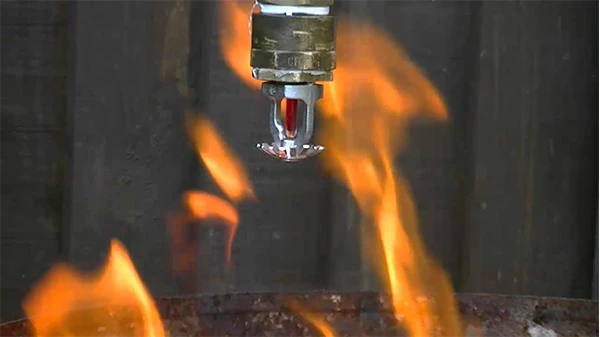
The fire sprinkler water bell is a small metal bell mounted outside the building. This device alerts people if a fire is inside or outside a building. This design is intended to keep people away from the building and to contact the fire department if necessary.
This outdoor bell ringing alerts people that there is a potential fire danger, and they should take precautions accordingly. Sometimes, the fire alarm may also be accompanied by a red flashing light. When a fire sprinkler water bell alarm is sounded, you must remain alert and take action as necessary.
If you see flames or smoke, evacuate the area immediately and call 911. In addition to helping keep people safe, water bell fire alarms can also help to reduce property damage. This is because they give people ample warning to evacuate a building before a fire has a chance to spread.
What Triggers a Fire Sprinkler Water Bell?
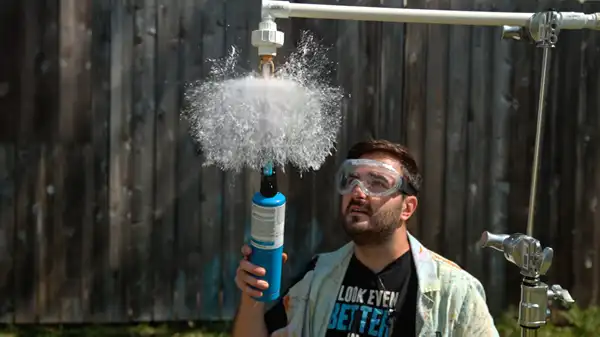
Fire sprinkler water bells are an essential part of any fire protection system. Unlike electric bells, which rely on a power source to activate, water bells are physically triggered by water flow and sound a continuous fire alarm to alert people.
This makes them ideal for use in areas where electrical power may not be available or reliable, such as in rural areas or during power outages.
Also, because they are activated by water flow, they can be used to meet fire code requirements for continuous fire alarm signals. When properly installed and maintained, water motor bells can provide an effective and reliable way to alert people to a fire emergency.
Can the Fire Sprinkler Water Bell be Cleaned?
The fire sprinkler water bell is designed to release a large volume of water immediately when the fire alarm is triggered, dousing the flames and giving occupants time to evacuate. But, over time, the water in the bell can become dirty and stagnant, posing a safety hazard. Also, it can become clogged with debris.
Hence, it is essential to regularly clean the bell to ensure it is in good working condition. Fortunately, cleaning the water bell is possible, though it requires some effort. With regular cleaning, a fire sprinkler water bell will be able to provide years of reliable service.
Should You Clean Your Fire Sprinkler’s Water Bell Regularly?
Keeping your fire sprinkler’s water bell in good working order is essential. These bells are one type of fire sprinkler, and they are designed to control the flow of water when there is a fire. Regardless, over time, mineral deposits can build up in the water bell, causing it to become less effective.
Thus, cleaning your water bell regularly is essential to ensure it will work properly. By regularly cleaning your water bells, you can ensure that they provide the necessary flow of water when a fire breaks out. Also, regular cleaning will help extend your fire sprinklers’ life.
While cleaning your fire sprinklers periodically is essential, it is also important to do so safely and effectively. Be sure to follow all the instructions provided earlier when cleaning your fire sprinklers’ water bell, and always exercise caution when handling any type of fire safety equipment.

